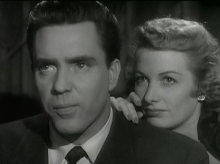 J. Gresham's "Christianity and
Liberalism" addresses the topic of heretical, revisionist
teachings and the damaging effect these bring within Christian
churches. By 'liberal' Machen isn't referring to political
liberalism but rather the introduction of revisionist, distorted
views of the Scripture, such as questioning Biblical innerancy and
the historicity of the Scripture. What's remarkable is that Machen
wrote this back in the 1920's, but all of the liberal heresies that
he addresses are just as much alive and well today. It isn't
uncommon to find the pastor at a supposedly "Christian"
church that denies important Biblical truths such as the virgin birth
or even the resurrection of Jesus Christ. I'm reminded of a message
I heard recently from pastor Phil Johnson, in which he rightly
observed that the greatest threat to Christianity today isn't the
raving atheist on the street, but rather the internal corruption of
liberal teachers from within the church itself (the quote comes from
Johnson message on the topic of pastoral shepherding, that's
available here)
J. Gresham's "Christianity and
Liberalism" addresses the topic of heretical, revisionist
teachings and the damaging effect these bring within Christian
churches. By 'liberal' Machen isn't referring to political
liberalism but rather the introduction of revisionist, distorted
views of the Scripture, such as questioning Biblical innerancy and
the historicity of the Scripture. What's remarkable is that Machen
wrote this back in the 1920's, but all of the liberal heresies that
he addresses are just as much alive and well today. It isn't
uncommon to find the pastor at a supposedly "Christian"
church that denies important Biblical truths such as the virgin birth
or even the resurrection of Jesus Christ. I'm reminded of a message
I heard recently from pastor Phil Johnson, in which he rightly
observed that the greatest threat to Christianity today isn't the
raving atheist on the street, but rather the internal corruption of
liberal teachers from within the church itself (the quote comes from
Johnson message on the topic of pastoral shepherding, that's
available here)
Machen draws the clear distinction
between "Christianity" and "liberalism",
identifying there is no such thing as liberal Christianity, but
rather there is orthodox, confessionally-centered Biblical
Christianity, at the core of which is gospel-centered faith in
repentance and belief in the resurrected savior Christ Jesus, and any
supposedly “christian” religious approach that detracts from
that, or throws doubts into the historical claims of the Bible,
particularly those that undermine the fundamental, historical tenants
of Christianity, Machen rightly distinguishes as something other than
Christianity, as another religion.
Machen addresses numerous liberal
arguments made about the historicity of Scripture, miracles,
teachings such as of the "universal fatherhood of God",
attacks on the Pauline epistles, the work and person of Christ, the
importance of doctrinal standards in the church, etc. It's a
fascinating and relevant read for laypeople. Consider Machen's
closing remarks, "There are congregations, even in the present
age of conflict, that are really gathered around the table of the
crucified Lord; there are pastors that are pastors indeed. But such
congregations, in many cities, are difficult to find. Weary with the
conflicts of the world, one goes into the Church to seek refreshment
for the soul. And what does one find? Alas, too often, one finds
only the turmoil of the world. The preacher comes forward, not out of
a secret place of meditation and power, not with the authority of
God's Word permeating his message, not with human wisdom pushed far
into the background by the glory of the Cross, but with human
opinions about the social problems of the hour or easy solutions of
the vast problem of sin. Such is the sermon... Thus the warfare of
the world has entered even into the house of God, And sad indeed is
the heart of the man who has come seeking peace." (p. 179-180)
Reading Machen should spawn good
questions for all Christians, and one should not be afraid to bring
these up with your pastor. Ask the pastor/elders if the church is
confessionally-centered, if it adheres to the historical creeds (such
as the Apostles creed/Nicean creed) and the truths defined therein.
Ask the pastor if the church adheres to the inerrant authority of the
word of God. Ask if the church believes in and teaches the miracles
of Christ, and especially the resurrection. If you don't get clear
answers on any of these, then give careful consideration if you're
actually a part of a Christian church, or instead within a liberal
false-church that actually has no part of the true body of Christ.
"Christianity and Liberalism"
is available at most online bookstores, but since it's in the public domain its also
freely available electronically at sites like this.
You can also hear a free MP3 recording
of the book here: http://reformedaudio.org/machen.html
For another example of the detrimental
damages done by liberalism in the Christian church, also check out
the recent testimony of a German Christian named Anita Kupferman and
her exposure to “higher critical methodology” in some of German
“theological” schools (her testimony can be read in HeartCry
magazine, available for free here)













